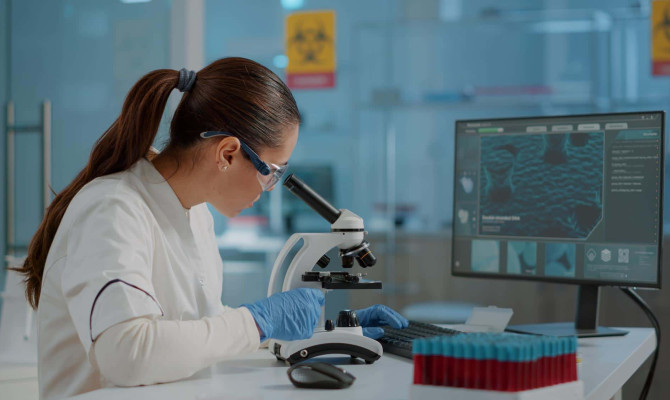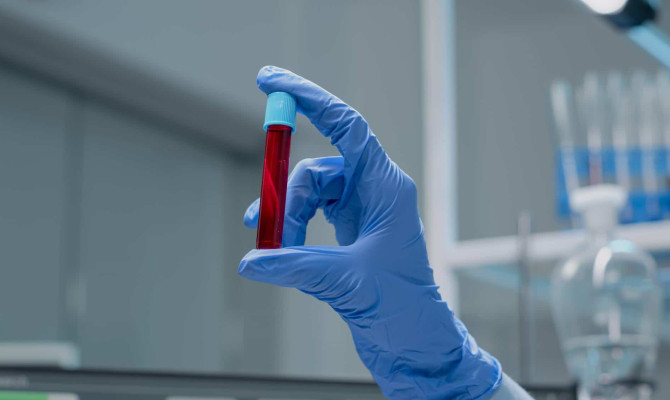Acute Renal Failure: Understanding and Management

- Acute Renal Failure
- 14 Aug 2023
Overview
Overview
Acute renal or kidney failure is a sudden episode of failure in the work of the kidney.
The kidney is an excretory organ of our body, and on either side of the spine are two kidneys for each individual. They are in the shape of a bean and have the size of a fist. Kidneys are complicated organs with up to 1 million filtration units called nephrons in each kidney. 1Overview | Researched based study from nlm.nih.gov/
Kidneys perform filtration of blood to remove waste, extra fluid, and toxins from the body.
This function of the kidney helps in regulating blood pressure and the balance of fluid and minerals in the body. Besides, the kidneys also control the formation of red blood cells and the active form of vitamin D.2Overview| Researched based study from kidney.org So, it is correct to say that the health of the kidneys is essential for our body.
What is acute renal failure?
A sudden decline in kidney function, shown by a rise in serum creatinine levels and either reduced or absent urine output, is what is known as acute renal failure.

Signs
What are the warning signs?
Our body tells us about our system by producing different signs; the same is true for kidney diseases. These signals are primary or early signs, and the advance signs are based on the severity of the conditions.
Primary Signals
- Fatigue
- Nausea and Vomiting
- Muscle cramps
- Loss of apetite
- Generalized weakness
- Itching and rashes on skin
- Change in sleeping pattern
- Change in urine volume
- Painful urination
- Change in the smell and color of urine
Advance Signals
- Swelling in feet, legs, face and around eyes
- Low urine volume
- Loss of consciousness
- Anxiety
- Shortness of breath
- Pressure or Pain in chest
- Coma
Reasons
Reasons of AKF
Acute renal failure may have one or more reasons, including failure due to pre-renal ailments like heart disease, renal ailments like kidney infection, and post-renal ailments like obstruction to urine flow due to stones. Some common issues are:
Blood flow reduction/Pre renal factors
The functions of the kidney are highly affected by blood flow, and any change affect the functions of the kidney. The reasons for reducing blood flow include,
- Dehydration due to diarrhea
- Hypotension
- Heart diseases
- Severe burn or injury
- Shock
- Excess use of Painkillers
- Failure of organ
- Surgeries
Problems in Kidneys / Renal or intrinsic factor
If kidneys are damaged by any disease , injury or infection then it also causes Acute failure of kidney, like
- Nephritis
- Myeloma
- Scleroderma
- Vasculitis
- Tubular necrosis
Blockage in kidney/post renal factors
Any condition that hinders the path of normal urine flow may also lead to acute renal failure; conditions like
- Prostate enlargement
- Renal Stones
- Blood clots
Other factors are also responsible for acute kidney failure like
Cancer
- As a consequence of management of cancer and the disease itself patient may suffers from acute kidney failure, cancers like ,Prostate, bladder, colon,and cervical .
Nephrotoxic drugs
There are a few drugs directly impact the Kidney’s functions like,
- Antiviral(Acyclovir)
- Anti-fungal (Amphotericin B)
- Anticancer (Cisplatin)
- Painkillers like NSAID’s Ibuprofen and others.
Factors
Factors causes ARF
Factors may cause ARF are :
- Environmental factors: Inadequate water, infectious disease, and their improper management
- Socio-economic factors: Cases are high in low income and elderly population.
- Existing conditions: Diabetes, blood pressure, chemotherapy, autoimmune disorders, and others.
- Hospitals: Patient may be attacked by infections or nephrotoxic drugs.
- Genetics: A rare but considerable factor.
Complications
What are the complications?
- Fluid overload results into edema of arms, legs and lungs
- Muscle weakness
- Paralysis
- Electrolyte imbalance
- Failure of antimicrobial treatments 3Complications| Researched based study from academic.oup.com
- Infections
- Deficiency of Vitamins and nutrition
- Heart issues (Arrhythmia)
- Nausea, Vomiting
- Metabolic Acidosis
- Breathlessness
- Chronic kidney Failure 5Complications| Researched based study from nhs.uk
- Death
Diagnosis
Diagnosis
Medical History
- The first step in the diagnostic process is to review the patient’s medical history for any indications of nephrotoxic drug usage or systemic conditions that may have an adverse effect on renal function.
Physical Examination
- An examination of the body should determine the intravascular volume status and spot skin rashes that point to a systemic disease.
Lab Tests
Laboratory testing should determine the levels of various elements, including creatinine, sodium, and others. Most individuals, and elderly men in particular, should have their kidneys ultra-sounded to rule out blockage. 6Diagnosis| Researched based study from aafp.org some important tests are:
Urine-Analysis -It includes tests for :
- Urine Volume
- Urine specimen for microscopy and culture
- Blood in urea (Hematurea)
- Protein in urea (proteinurea)
Blood test-includes tests for:
- BUN test or blood urea nitrogen
- Potassium in serum
- estimated glomerular filtration rate
- Blood glucose (diabetes suspected)
- Blood cultures (if infection is suspected)
Creatinine clearance
- It is analyzed in both blood and urine samples collected over 24 hours, and the combined result is used to determine the result.
Imaging Tests
To rule out any kind of damage or impairment in the kidneys, imaging tests are performed on a patient.
- Ultrasound: to diagnose size, appearance, blockage, and injury.
- CT scans: In obese individuals, where an ultrasound might not be able to produce a clear enough image, they are commonly employed to check for cancer, stones, etc.
- MRI: to ensure the kidneys are free of damage or obstruction, high-contrast images of the kidneys can be obtained using MRI.
Biopsy
- During a biopsy, organ tissue is taken out for a lab analysis. It is employed most frequently if acute renal failure is suspected due to an intrinsic factor.
Classification
Classification
Normally healthy kidneys filter the received blood at a rate of 60 mL per minute or higher, and this rate is called the GFR, or glomerular filtration rate. The normal urine output is 800 mL to 2000 mL per day if you consume adequate water. Based on the change in serum creatinine level, change in urine output, the RIFLE (Risk, Injury, Failure, Loss, and End-Stage Kidney Disease) 8Classification | Researched based study from U.Spharmacist.com system categorizes acute kidney failure into three stages of,
- Risk- from baseline, a 1.5 to 2 times increase in serum creatinine or GFR is reduced to 25%, or urine output is reduced to 5 ml/kg/hr in less than 6 hrs.
- Injury- Serum creatinine level rises by 2 to 3 time the baseline or GFR is reduced to 50%.
- Failure- Serum creatinine level rises by more than 3 times the baseline level, GFR is reduced to 75%, urine output is reduced to < 3 ml/kg/hr or there is a condition of anuria, i.e., no urination, for more than 12 hours.
Management
Management
Management of ACF depends on the underlying reasons and the associated problems. Reasons are broadly classified as:
- Pre-renal factors: If blood flow to the kidney suffers and causes a low filtration rate,
- Renal factor: When the kidneys are not healthy or are not able to perform
- Post-renal factor: When urine flow from the tract is impeded by any factor
Managing prerenal factors
- To manage dehydration, IV fluid is administered to the patient.
- Vasopressor medicines like Norepinephrine can increase the dropped blood pressure back to normal.
- Treating liver diseases like cirrhosis with vasopressor drugs, hemodialysis, liver dialysis, and TIPS (transjugular intrahepatic portosystemic shunt)
- Management of cardiac heart failure using prescribed ACE inhibitors, diuretics, betablockers, and diet
Managing Renal Factors
- Immediately stop using nephrotoxic drugs.
- Treatment of existing kidney diseases like infections, nephritis, and others
- Diet control is based on restricting potassium, salt, and protein.
- Maintaining a healthy weight
- No to anxiety and stress
- Quit smoking
- Stop alcohol consumption
Managing Post renal Factors
- To allow normal kidney function, treatment of Cancer, Stones , Prostate enlargement are the options based on underlying reason of post renal failure .
- Obstruction to kidney flow can also be bypass by using several methods like, Ureteroscopy, Ureteral stent, Nephrostomy tube, and Cystolitholapaxy .
RRT (Renal Replacement Therapy)
- The phrase “renal replacement therapy” (RRT) refers to therapeutic techniques that replace the kidney’s natural capacity to filter waste. The control of the body’s acid-base balance, as well as the electrolyte and fluid balance, gradually deteriorates as a result of acute kidney insufficiency (AKI). To help the organism survive the ensuing metabolic disturbances in such a situation, RRT is crucial.
- Dialysis, or renal support therapy, is the most common form of RRT. 4Management | Researched based study from news-medical.net
Prevention
Preventing acute renal failure
- Avoid or minimize nephrotoxic drugs.
- Maintain a normal blood pressure.
- Maintain the hydration of the body.
- Regular checkups for heart disease and blood sugar
- Immediate and complete treatment of any obstruction like a stone or swelling in the kidneys
- Following a Healthy Diet
- Regular Exercise
Prognosis
Prognosis
Most patients recover and live a healthy life following treatment and supportive care if the underlying cause is caught on time and treated well. Prognosis of acute renal failure majorly depend on following factors: 7Prognosis | Researched based study from nlm.nih.gov
- Age of the patient- survival rate is low in elder patients with ARF.
- Hypotension (low blood pressure)-if not controlled, hypotension may cause injury to the kidney and increase the length of treatment.
- Urine output- a normal urine output of 800-2000ml/day reflects recovery of patient.
- Length of disease-the longer the duration of the disease, the higher the chances of permanent injury or failure of the kidneys.
- Existence of other diseases or infections- disease or infections increase complexity and produce high chances of chronic kidney failure.
- Balance of fluid and electrolytes- as soon as the electrolyte and fluid imbalances are reversed, the healing process also improves.
Any feedback on this article?
 This Articles content was accurate
This Articles content was accurate Very Informative Article
Very Informative Article I have a question or a comment
I have a question or a comment
 This article contains inaccurate content
This article contains inaccurate content This article was not helpful
This article was not helpful I have a question or a comment
I have a question or a comment
We appreciate your helpful feedback!
Checkout our social pages
References
-
National Library of Medicine
Human nephron number: implications for health and disease | Overview
-
National Kidney Foundation
How Your Kidneys Work | Overview
-
Oxford University Press
Long-term consequences of acute kidney injury: a narrative review | Complications
-
News Medical
Renal Replacement Therapy | Management
-
National Health Service
Acute kidney injury | Complications
-
American Academy of Family Physician
Acute Kidney Injury: A Guide to Diagnosis and Management
-
National Library of Medicine
Acute Kidney Injury | Prognosis
-
U.S. Pharmacist Journal
Acute Kidney Injury: An Overview | Classification





































